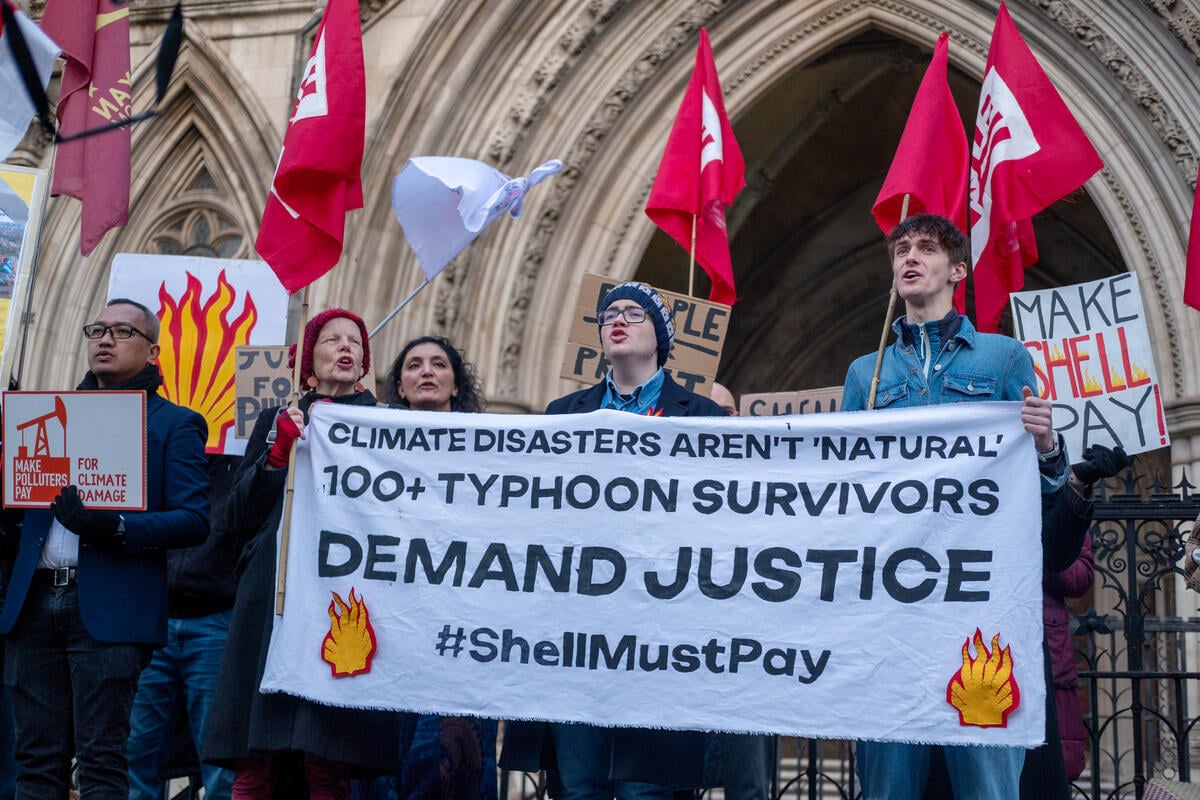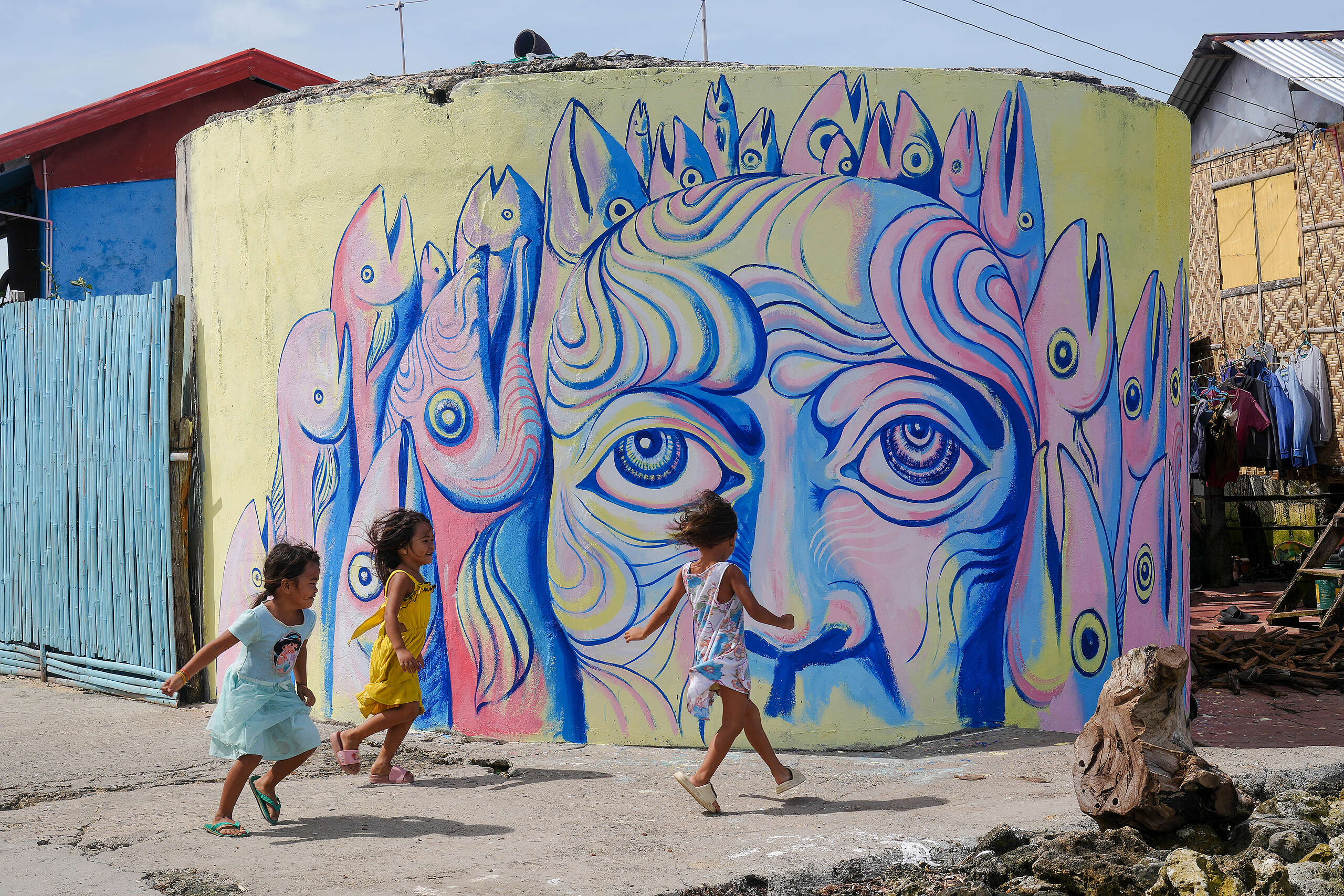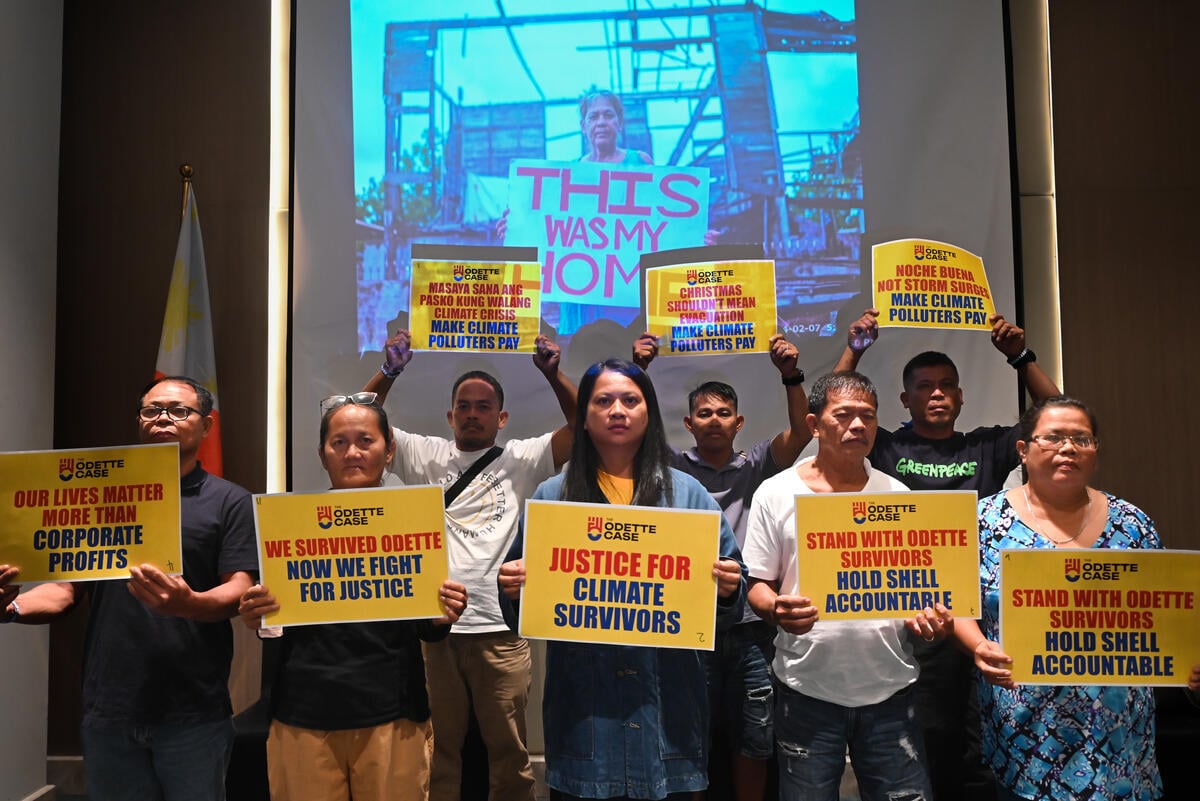13 November 2024, Quezon City – Today, environmental activists from Young Bataeños for Environmental Advocacy Network (YBEAN) and Greenpeace Philippines staged a silent protest at the Philippine International Nuclear Supply Chain Forum to voice their opposition to the government’s nuclear energy initiatives. In a powerful statement, two activists unfurled banners reading “We want a nuclear-free future,” underscoring their call for safer, genuine climate solutions for the Philippines.
“Nuclear energy is not a climate and energy solution. Our communities need secure, affordable energy–not a high-stakes gamble with nuclear,” said Khevin Yu, Greenpeace Campaigner. “Nuclear power is far from clean and affordable–it is hounded by financial and safety risks that will bring more problems that would cost taxpayers and electric consumers billions, if not trillions, of pesos–further burdening Filipinos who are already suffering from the climate crisis.”
The groups emphasized that given the archipelago’s susceptibility to earthquakes, as well as typhoons and rising sea levels, which are expected to get worse because of climate change, the risks of nuclear disaster are even higher. They noted that nuclear waste, which remains toxic for thousands of years, poses a serious threat to communities and the environment.
A representative from YBEAN also voiced support for a nuclear-free future. “Our generation will bear the brunt of consequences of today’s decisions,” said Jochelle Magracia, YBEAN Chairperson and youth activist. “We need the government to invest in sustainable, renewable energy sources that protect our health, safety, and future. Nuclear power is simply too dangerous and costly for our country.”
The protest comes in response to recent agreements between the Philippine government and international partners, including the United States and South Korea, to explore nuclear energy options. “How can we trust our safety and future with these investors who only care for their own profit and interest?” Magracia said.
Greenpeace argues that nuclear power would saddle the country with enormous costs, both in terms of infrastructure and long-term waste management, and would require far more time to generate energy, citing a recent report[1] that shows nuclear power will only generate 7.9% of the country’s energy needs by 2050.[2]
“By committing to nuclear power, the Philippines risks diverting critical funds from renewable energy initiatives like wind and solar that could deliver safe, affordable energy now,” said Yu. “If President Marcos Jr. really wants to address our climate and energy crisis, he should drop nuclear energy and invest instead in a renewable energy transition that prioritizes wind, solar, and other clean technologies. He must also review and retract the nuclear program, as well as House Bill 9293, or the proposed Philippine National Nuclear Energy Safety Act.”
Greenpeace Philippines reaffirmed its commitment to standing with communities affected by energy policies and to advocating for solutions rooted in climate justice. The organization will continue to challenge policies it deems harmful to people and the environment, and will push for climate solutions towards a just and climate resilient future for Filipino communities.
###
PHOTOS HERE
Notes to editors:
[1] A recent report by Profundo studied the cost and timeframe of 6 new nuclear power plants: Olkiluoto 3 (Finland), Shin Hanul 1-2 (South Korea), Barakah 1-4 (United Arab Emirates), Vogtle 3-4 (United States), Flamanville 3 (France) and Hinkley Point C 1-2 (United Kingdom). Their study suggests it will take 14.3 years to construct a new nuclear power plant with a cost range from EUR 6.4 to 46.1 billion, with an average of EUR 23.6 billion. It was also estimated that budget overruns cost from EUR 2.5 to 24.7 billion based on the 6 case studies.
[2] Nuclear enters the country’s energy mix by 2032 and accounts for 7.9 percent share to TPES in 2050. Philippine Energy Plan 2023-2050
For more information and interview requests, please contact:
Karl Orit
Communications Campaigner
Greenpeace Southeast Asia – Philippines
[email protected] | +63 9194571064 (Viber & WhatsApp)



